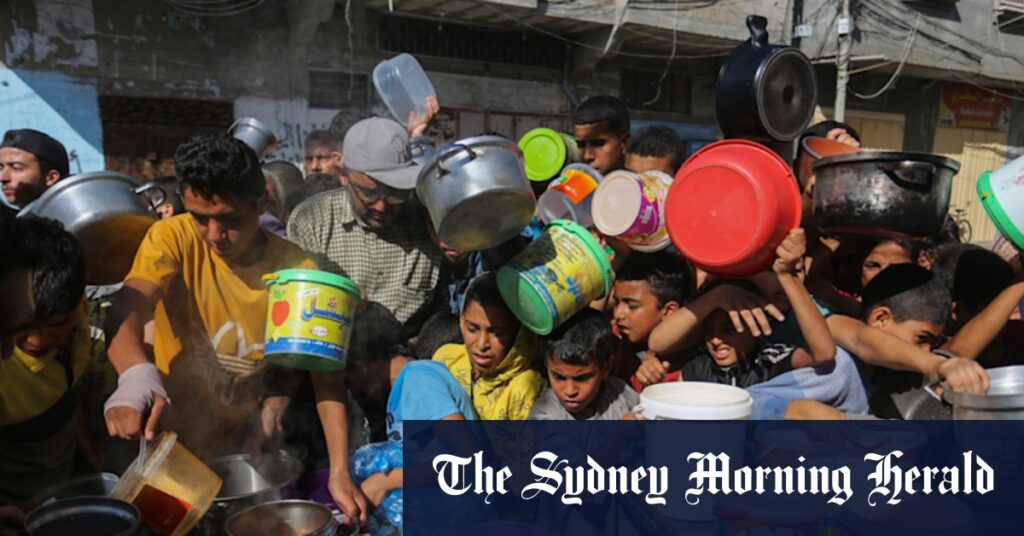
The Israeli embassy has firmly rejected claims of starvation in Gaza, contradicting statements from the United Nations, global aid organizations, and numerous world leaders. This dispute comes amid reports from the World Health Organization (WHO) of a surge in malnutrition-related deaths in the region.
WHO Director-General Tedros Adhanom Ghebreyesus recently highlighted the dire situation, noting at least 21 deaths of children under five due to malnutrition. In response, Israeli Deputy Ambassador Meron dismissed the alarming images of emaciated Palestinian children as “false pictures,” suggesting that food shortages are a result of theft by Hamas militants and a lack of action from international aid organizations.
Contrasting Views on Humanitarian Crisis
Meron’s comments stand in stark contrast to those of international leaders, including Australian Prime Minister Anthony Albanese, British Prime Minister Keir Starmer, and German Chancellor Friedrich Merz, who have expressed grave concerns over the humanitarian situation in Gaza.
According to Meron, “The aid is ready, it’s ready to be given to the population, they just need to come and get it,” referring to the United Nations and other aid organizations. He further accused Hamas of orchestrating a “false campaign” to manipulate global perception.
“There is no starvation in the Gaza Strip,” Meron asserted. “This is a false campaign as we see it, a false campaign from the Hamas side to have those photos being published … to bring a false negative story to the world.”
International Reactions and Accusations
The Israeli government’s stance has been echoed by Prime Minister Benjamin Netanyahu, who urged the UN and aid organizations to “stop finding excuses” and accused them of spreading falsehoods. Netanyahu has faced charges from the International Criminal Court for allegedly using starvation as a weapon of war, claims his office has dismissed as antisemitic.
Meanwhile, over 100 international aid organizations have issued a joint statement warning of “mass starvation” in Gaza, with the WHO reporting 74 malnutrition-related deaths this year, including 24 children under five in July alone.
“Most of these people were declared dead on arrival at health facilities or died shortly after, their bodies showing clear signs of severe wasting,” the WHO reported.
Global Diplomatic Tensions
The Australian government, alongside 27 other nations, has condemned what it describes as the “drip-feeding of aid” by Israel. Prime Minister Albanese stated that blocking food deliveries constitutes a breach of international law, referring to a decision by Israel to halt aid from March to May.
Pressed on these allegations, Meron maintained that Israel complies with international humanitarian law, asserting that “there is enough aid in Gaza” and placing the responsibility on Hamas.
Broader Implications and Future Steps
This diplomatic row highlights the complexity of the Israeli-Palestinian conflict and the challenges faced by international aid efforts. The ongoing debate over the humanitarian situation in Gaza underscores the need for a coordinated global response to address the crisis.
As the international community continues to grapple with these issues, the focus remains on ensuring that aid reaches those in need and that political tensions do not exacerbate an already dire humanitarian situation.
The situation in Gaza remains fluid, with potential implications for regional stability and international relations. Observers will be closely watching how these diplomatic tensions evolve and whether they lead to meaningful changes on the ground.






